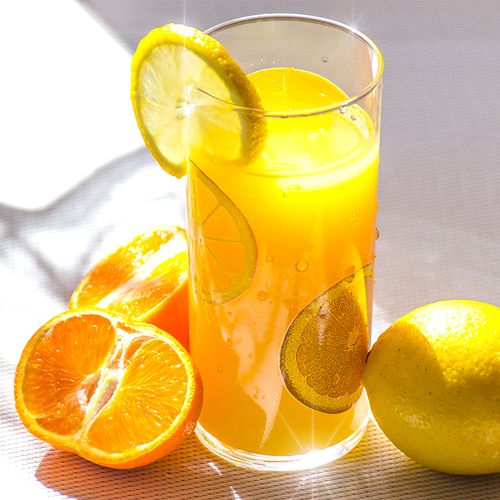When a kidney stone creates a blockage in a ureter (one of the tubes that connect the kidney to the bladder), it can be excruciatingly painful. Each year, more than 250,000 Americans are hospitalized because of this condition. Fortunately, new research is identifying highly effective prevention and treatment options. Recent findings…
- Lemonade fights kidney stones. Researchers recently tracked stone-prone patients for up to four years and found that those who drank two quarts of lemonade daily had fewer new stones.. and little or no growth of existing ones.
Why it works: Lemon juice contains high amounts of citrate, a substance that inhibits kidney stones by reducing urine acidity and binding with urinary calcium. Potassium citrate, in pill or liquid form, is routinely prescribed for stone prevention. Lemonade isn't as potent as potassium citrate, but it does appear to be a viable alternative for patients who can't take or tolerate the drug (people with impaired kidney function, for example), or for those who wish to avoid another medication.
Make Lemonade
To reap the study-proven benefits, you need to drink two quarts of homemade lemonade daily.
The lemonade should be made by mixing two quarts of water with four Ounces of reconstituted lemon juice. To reduce or eliminate sugar and/ or calories, consider using artificial sweeteners. Since stone formers are advised to drink three quarts of fluid daily as a preventative, you'll benefit even more if two of those quarts are lemonade.
More News For Those With Kidney Stones
Alpha blockers can speed stone passage. For years, researchers have searched for ways to facilitate spontaneous passage of kidney stones that are stuck in a ureter so that patients would be spared stone removal via a procedure such as an endoscopic technique, us ing a thin, telescopic tube.
Good news: In multiple trials conducted over the last five years, alpha blockers-prescription drugs traditionally used to treat an en larged prostate—have proven to be remarkably effective for speeding and easing the elimination of small stones (less than six millimeters in diameter) from a ureter. These drugs increase the likelihood of spontaneous passage of small stones by about 90%.
Alpha blockers work by relaxing smooth muscle cells lining the ureter, improving urine flow and preventing the painful contractions that can slow or block stone movement. It's now become the standard of care to start most ureteral stone patients on a trial of alpha blockers. In a majority of cases, the drugs allow the stones to pass spontaneously. A small percentage of patients who take alpha blockers experience orthostatic hypotension-light-headedness when quickly standing up.
- Obesity and weight gain elevate kidney stone risk. Several recent studies confirm that being overweight and/or gaining weight significantly increases kidney stone risk. A recent large-scale, long-term study shows that obese men are 44% more likely, and obese women 90% more likely to develop stones than are their leaner counterparts. Gaining more than 35 pounds during adulthood also heightens risk (by 39% for men and up to 82% for women), compared with maintaining a stable weight.
What's the connection between kidney stones and weight gain? As recent studies show, many adults who are significantly overweight also have type 2 diabetes (often undiagnosed) or are insulin resistant—that is, their bodies have a reduced ability to respond to insulin, which causes the pancreas to secrete excessive amounts of insulin. Insulin resistance and diabetes raise the acid levels in urine-a primary risk factor for stones. Losing weight is the ideal antidote. But if that's not possible, alkali therapy, in the form of potassium citrate, may be prescribed to reduce the acid load in urine to prevent stones.
Foods That Prevent Kidney Stones
For prevention, people with a personal or family history of kidney stones should...
- Drink three quarts of fluid daily, mostly non-caffeinated. Coffee and tea are fine in moderation
- Get enough calcium. Though stone formers had long been advised to limit calcium intake, recent studies link insufficient calcium to increased risk for stones.
That's because calcium can bind with stone-producing oxalates in the digestive tract, preventing these minerals from concentrating in the urine. Aim for two to three servings daily of low-fat milk, cheese, yogurt or calcium-fortified juice or cereal.
Caution: Calcium supplements may not be the best source. Studies show that they may raise urinary calcium excretion, a risk factor for stones. If you have a personal or family history of kidney stones and wish to take calcium supplements, have your urine tested after three months to check for elevated calcium levels.
- Limit salt. Excess sodium steals calcium from your bones and causes it to accumulate in your urine, increasing your risk for kidney stones. Don't add salt to your food and avoid highly processed, prepackaged foods.
- Avoid high-oxalate foods, such as spinach, tea, chocolate, nuts, asparagus and rhubarb. Our bodies also convert some vitamin C into oxalates, and studies suggest that too much can raise urinary Oxalate levels. Stone formers should not exceed 2,000 mg (2 g) of vitamin C daily.
- Cut back on meat. Animal protein, particularly from red meat, raises acid levels in the urine, increasing kidney stone risk. Aim for three or fewer red meat servings weekly
What Is a Kidney Stone?
A kidney stone is a hard mass that forms when certain minerals—calcium, oxalate and uric acid—fail to dissolve in the urine and then accumulate into solid crystals. Normally, urine contains chemicals, such as citrate, that inhibit stone formation. But some people are prone to stones due to diet, lifestyle and certain medical conditions, such as inflammatory bowel disease. Kidney stones can trigger sudden, searing pain in the back and side, often accompanied by blood in the urine, nausea and/or vomiting.
